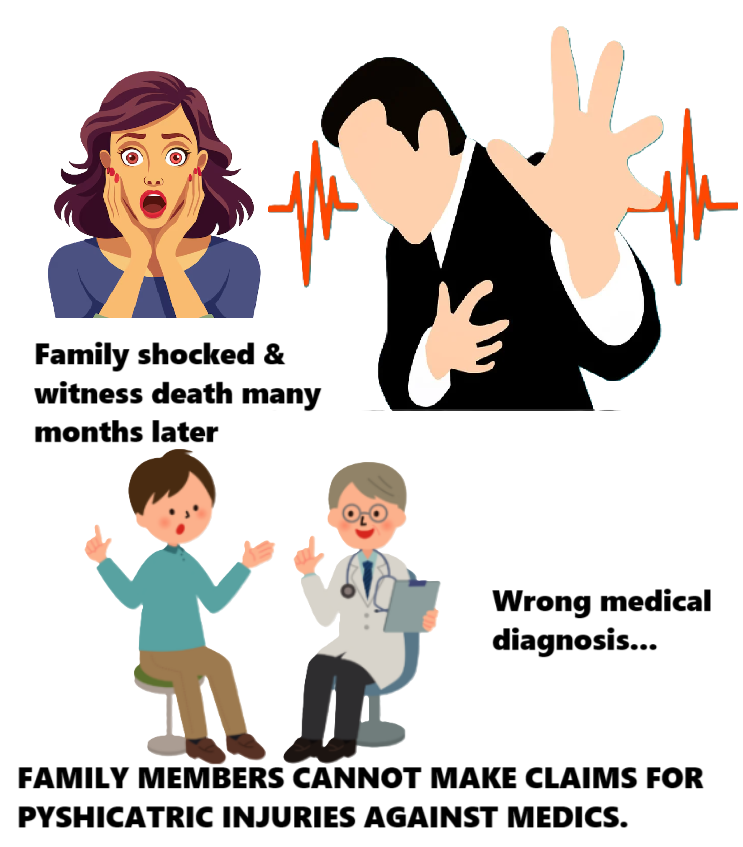Paul & Anor v Royal Wolverhampton NHS Trust [2024] UKSC 1 (11 January 2024)
Citation:Paul & Anor v Royal Wolverhampton NHS Trust [2024] UKSC 1 (11 January 2024)
Rule of thumb: If there is a negligent medical diagnosis, and the patient leaves then some time after (days, weeks, months) drops dead with their family looking on, are the family members entitled to damages for psychiatric injury suffered? The answer is that, no, they are not entitled to damages, even if the diagnosis was negligent.
Background facts: This was in the subject of psychiatric injury/loss of society, and medical negligence.
The basic facts were that there were 3 appeals with fairly comparable facts all heard at the same time. All 3 people went to their doctor complaining that they were not feeling well. In all 3 cases the doctor misdiagnoses what was wrong with them, and all 3 had another illness which was not diagnoses. All 3 then essentially dropped dead of the undiagnosed illness in the days/weeks/months thereafter, and all 3 were found in terrible physical states by family members, with all 3 then dying in the ambulance to be pronounced dead on arrival at the hospital or by paramedics at the scene. The family members who found their loved ones dead all developed mental health conditions thereafter – PTSD, depression etc.
The family members argued that they were owed damages for the psychiatric mental injuries they sustained caused by the medical negligence.
Court held: The Court held that the proximity principle in the duty of care was not met by the plaintiffs. There was not proximity between the fatal incidents. That there was no way that the doctors could have known that they would drop dead in the shocking manner they did being found by family members. The family members who suffered mental injuries were not to be paid damages by the hospital for the medical negligence.

Ratio-decidendi:
‘As a generality such damage is irrecoverable because the person injured is not within the area of danger which the wrongdoer has in contemplation (Bourhill v Young 1942 SC (HL) 78, Lord Thankerton at 83, Lord Russell at 85-86). Exceptions to this generality have been made in the trilogy of cases, to which reference has been made, culminating in Frost v Chief Constable of South Yorkshire [1999] 2 AC 455. These apply only to close relatives who were at the scene of an accident or who came across its immediate aftermath. It was not suggested that these exceptions should be reviewed.
At the risk of adding unnecessarily to the principal judgment, the key feature of these exceptional cases, in which recovery is permitted, is that the claimant is present at the scene of an accident or its immediate aftermath. There must be an accident to be witnessed. At the core of any claim is the need for the claimant to demonstrate that the defendant breached a duty which was owed to him or her. This depends upon both reasonable foreseeability of damage and proximity between the parties (Taylor v A Novo (UK) [2014] QB 150, Lord Dyson MR at paras 24 to 29)’.
Lord Carloway
Warning: This is not professional legal advice. This is not professional legal education advice. Please obtain professional guidance before embarking on any legal course of action. This is just an interpretation of a Judgment by persons of legal insight & varying levels of legal specialism, experience & expertise. Please read the Judgment yourself and form your own interpretation of it with professional assistance.

